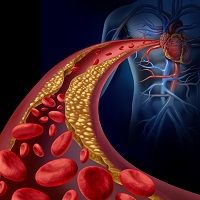Analysis Examines Efficacy, Safety of Bempedoic Acid From 4 Clinical Trials
An analysis of 4 phase 3 clinical trials examining the use of bempedoic acid for lowering LDL cholesterol was presented at AHA 2019.

A pooled analysis of 4 trials from the phase 3 CLEAR trials presented at the American Heart Association (AHA) 2019 Scientific Sessions in Philadelphia are supporting the use of bempedoic acid for lowering LDL cholesterol (LDL-C).
Using patient-level data from CLEAR Harmony, CLEAR Wisdom, CLEAR Tranquility, and CLEAR Serenity, the analysis revealed bempedoic acid was effective in lowering LDL-C at 12 weeks and in reducing total cholesterol as well as hsCRP.
To examine the effectiveness of the first-in-class, oral, small-molecule, ACL inhibitor, investigators conducted a review of the 4 aforementioned trials with a primary efficacy endpoint of mean LDL-C change at week 12. Secondary endpoints in the analysis included percent change in non-high-density lipoprotein cholesterol (non-HDL-C), total cholesterol, apolipoprotein B, and hsCRP from baseline to 12 weeks.
From the 4 trials, a cohort of 3623 patients for inclusion in the study. Investigators noted all patients were on stable lipid-modifying therapies and were grouped into 2 pools based on their statin use—a moderate- or high-dose statin use group and a no- or low-dose group.
Investigators noted patients from CLEAR Harmony and CLEAR Wisdom had atherosclerosis cardiovascular disease(ASCVD) or heterozygous familial hypercholesterolemia (HeFH). Additionally, patients in these two trials received bempedoic acid and maximally-tolerated statins while patients in CLEAR Tranquility and CLEAR Serenity were statin intolerant and received either background ezetimibe or lipid-lowering therapy.
Of the 3623 patients included in the analysis, 3009 were included in the ASCVD/HeFH arm an 614 were in the statin-intolerant arm. In the ASCVD/HeFH group, 2010 received bempedoic acid and 999 received placebo. In the statin-intolerant group, 415 received bempedoic acid and 199 received placebo.
Upon analysis, investigators noted a least-squares mean LDL-C reduction of 16.72 in patients receiving bempedoic acid in the moderate- or high-dose statin group and a mean reduction of -24.06 in patients receiving bempedoic acid in the no- or low-statin dose group. In terms of absolute reduction, patients receiving bempedoic acid in the moderate- or high-dose statin group saw a mean 19.8 mg/dL reduction of LDL-C and a 36.5 mg/dL among those in the statin-intolerant group.
Additionally, in the ASCVD/HeFH on statins group, investigators observed a significantly greater proportion of patients in the bempedoic acid group achieved an LDL-C level of less than 70 mg/dL at week 12 compared to placebo (28.9% versus 8.0%; P<0.001). Investigators also noted pooled analyses showed least-squares mean percent changes from baseline to week 12 in non-HDL-C, total cholesterol, and apolipoprotein B and median percent change from baseline to week 12 for hsCRP were significantly lower in the BA group compared with placebo.
This study, titled “Efficacy of Bempedoic Acid: A Pooled Analysis of 4 Pivotal Phase 3 Clinical Trials,” was presented at AHA 2019.